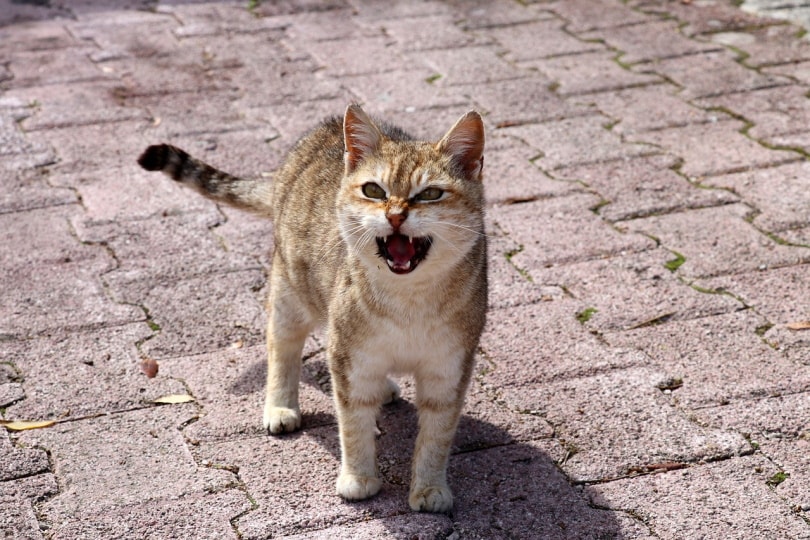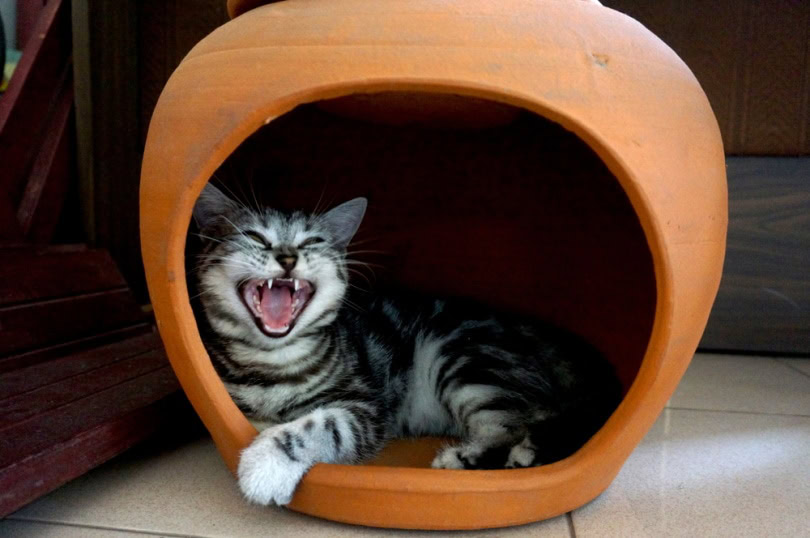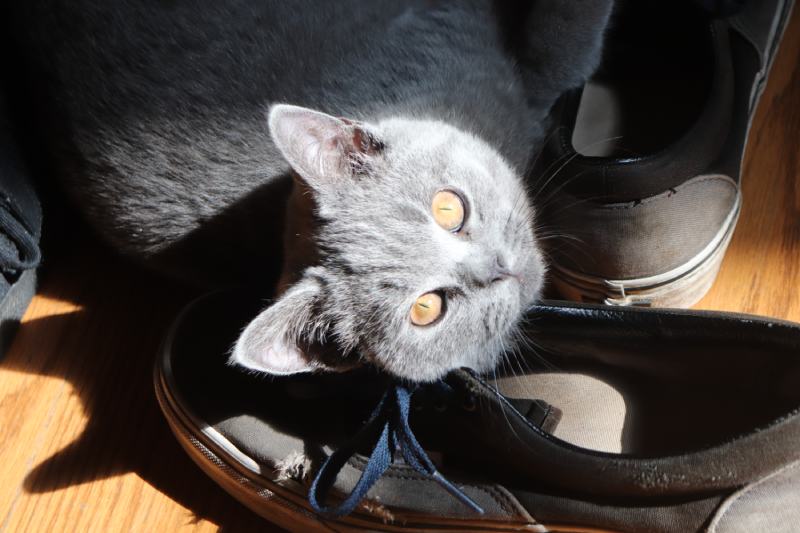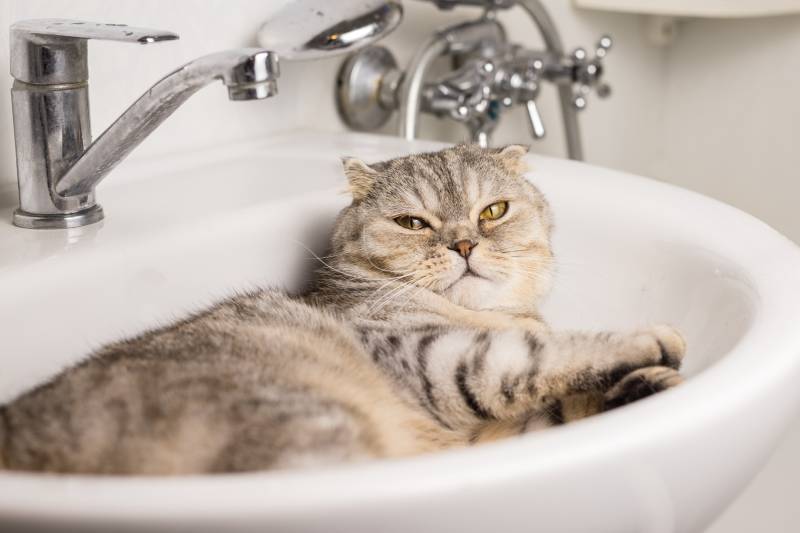VET APPROVED

The information is current and up-to-date in accordance with the latest veterinarian research.
Learn more »Click to Skip Ahead
Cats meow for many different reasons, and some are more vocal than others. Some meow when they want your attention, want to play or eat, or because they are just plain angry. Whatever the reason, it can be worrisome if your cat’s meow suddenly becomes weak and raspy, which begs the question: Why is my cat’s meow so weak and raspy?
Laryngitis is usually to blame for a weak and raspy kitty voice, and it’s the technical term for a hoarse cat voice. Laryngitis means the vocal cords and larynx are inflamed, and if your cat suddenly has this issue, a trip to your veterinarian is warranted. Cats can get the common cold like humans, and that could simply be the cause, but you’ll need to find out for sure. In this article, we’ll list the possible reasons to give you an idea of what’s going on.

The 3 Reasons Why Your Cat’s Meow Is Weak and Raspy
1. Voice Overuse
Humans can get a raspy and weak voice from being at a concert or some other big event because of yelling and talking excessively, and cats can get a weak and raspy voice simply from over-meowing. Cats may meow excessively if trapped in a room or closet and overuse their voice to get someone’s attention, which results in inflammation of the vocal cords and larynx.

2. Upper Respiratory Infection
An upper respiratory infection (URI) is the most common reason a cat may develop a raspy and weak voice. This type of infection is contagious and is spread among other infected cats through saliva and secretions from the eyes and nose. Cats sharing a litter box, water bowls, food bowls, toys, and bedding also spread URIs, though the most common is through direct contact.
In cats, the most common causes of URIs are herpesvirus and calicivirus. Here are some signs to watch out for.
- Sneezing
- Coughing
- Eye discharge
- Nasal discharge
- Loss of appetite
- Lethargy
- Fever
- Drooling
3. Nasopharyngeal Polyps
These polyps can form in the back of the throat, which can cause a hoarse and raspy voice. Polyps are benign masses (not cancerous) that can be removed by your veterinarian under local anesthesia. Though the cause is unknown, experts speculate that these abnormal growths of tissue can form as a result of chronic inflammation. Luckily, nasopharyngeal polyps are treatable and removable.


How Is Laryngitis Treated in Cats?
First and foremost, it’s best to take your cat to your veterinarian for an appropriate diagnosis. Your vet can evaluate and determine a course of action to remedy the issue. An antibiotic may be prescribed for URI signs that linger and are severe. Usually, URIs are bacterial infections, and an antibiotic will not treat the infection if that’s the case. However, your vet may prescribe an antibiotic to prevent a second bacterial infection from occurring. Elsewhere, steroids can be of benefit to cats with laryngitis.
Wet, canned food can help soothe your cat’s throat while signs are active. Ensure your cat has access to fresh water, and if your cat isn’t much of a drinker, you can always invest in a cat water fountain.
If you have questions about this, it’s a good idea to speak to a veterinarian.

Tips for Keeping Your Cat Safe
Taking your cat for yearly checkups is vital in keeping your cat healthy. For kitten owners, ensure you bring your kitten to the vet for the necessary vaccines.
One vaccine that helps to reduce the risk of developing a URI is the feline viral rhinotracheitis vaccine or the FVRCP vaccine. Kittens should receive this vaccine every 3 to 4 weeks until they reach 16 to 20 weeks of age. These booster shots train the immune system to recognize the vaccine so that the immune system can fight off future infections. When a cat reaches 16 weeks, a final booster shot should be given after 1 year. After that, it should be administered every 3 years.
For multiple cat owners, if one cat is sick, you should quarantine the sick cat away from the healthy ones for at least 2 weeks. Do not allow your other cats to share food bowls, water bowls, litter boxes, toys, or bedding, as this increases the risk of spreading the virus. Wash your hands thoroughly after touching your sick cat, and possibly even change your clothes.


Final Thoughts
It’s rare for a URI to spread to humans in the household, but taking the extra measures of washing your hands and even your clothing after touching the sick cat can go a long way in keeping the rest of your cats and yourself free from infection.
Be sure to take your cat for regular checkups, and ensure you ask your vet about necessary vaccines to keep your cat healthy. URIs are common in cats, and most times, it just takes time for your cat to get over the infection. Be patient and monitor your kitty closely for worsening signs. In the end, your cat should make a full recovery.
Featured Image Credit: M. Sriwongmas, Shutterstock












